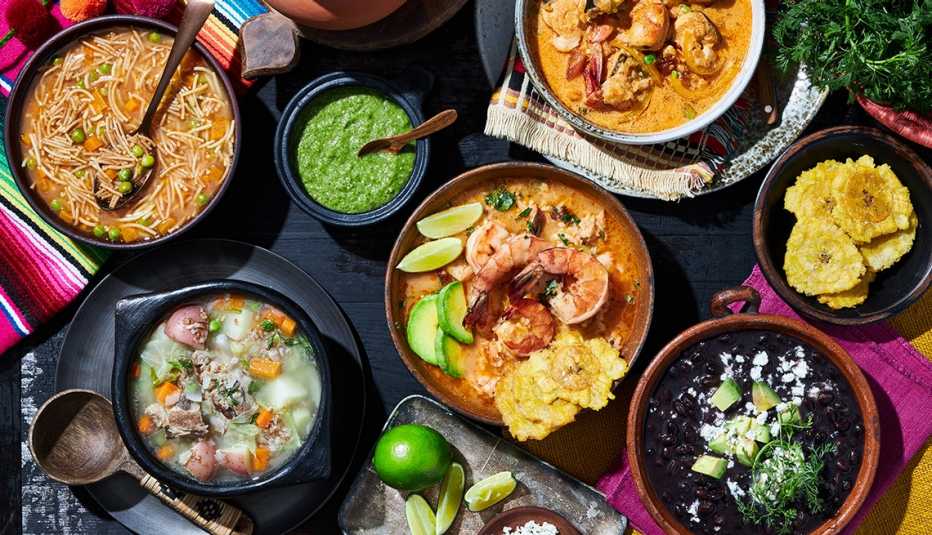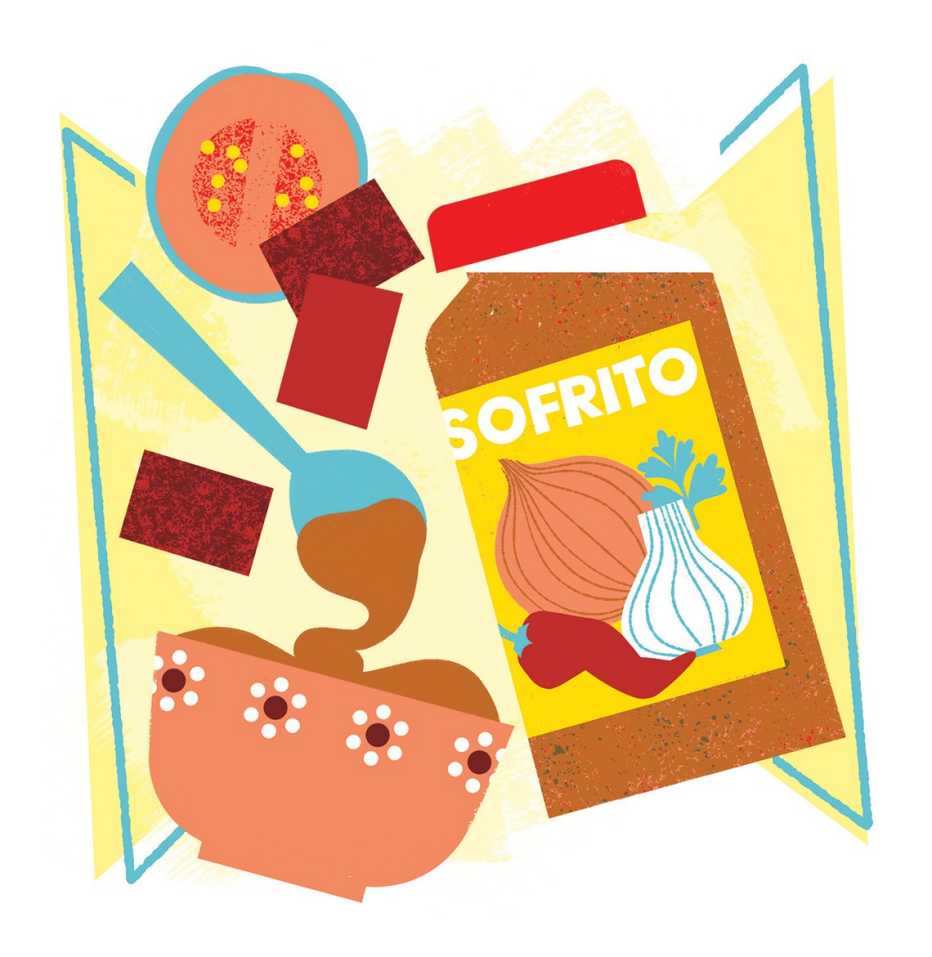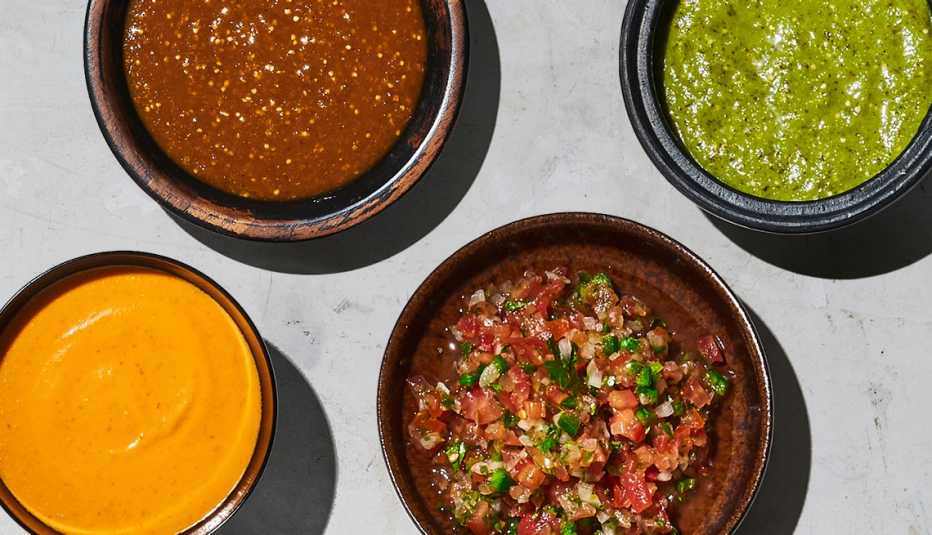AARP Hearing Center


If you’ve ever offered soup to soothe hurt feelings or fed it to someone who was unwell, you know it’s a food imbued with emotion. These are some Latin favorites that define “comfort food” and that any home cook can make (recipes for all are easy to find online).


AARP Membership— $12 for your first year when you sign up for Automatic Renewal
Get instant access to members-only products and hundreds of discounts, a free second membership, and a subscription to AARP the Magazine.


Viva la pantry!
Chefs say to stock up on these items to add Latin flavor to your cooking.
Dulce de leche. It’s caramelized cow’s milk, often sold in a jar or can. Drizzle it over ice cream, use it to flavor cakes or eat it by the spoonful.
Sofrito. A blend of onions, peppers, garlic, cilantro and more, it is sold in jars. Use it on rice, beans and chicken.
Guava paste. Try this thick spread, made from the tropical fruit, instead of fruit jams, or serve slices with cheese.
Coconut milk. Add this to stews and include it when cooking rice, preparing desserts, and making alcoholic and nonalcoholic drinks.
Masa harina. It’s a form of corn flour in which the corn kernels are first soaked in an alkaline solution. Use it to make tortillas or to thicken stews. —Marisel Salazar
Mexico: Sopa de Fideos
For this classic chicken soup, fideos (or broken vermicelli) are sautéed until golden. Tomatoes, onions and garlic jump into the pot, followed by chicken broth. Traditionally the soup is served with lime juice and hot sauce.
Colombia: Cuchuco
This substantial soup is made with corn, barley or bulgur; pork ribs; and root vegetables. It’s seasoned with a bit of onion and cilantro. Some cooks add beans, but green peas are also traditional.
Puerto Rico and Cuba: Asopao
A thick soup or watery stew — depending on whom you ask — it’s made with chicken (or shrimp), rice and vegetables. Similar to gumbo, it gets its golden color from annatto (an orange-red spice) and tomato sofrito enhanced with cumin.
Brazil: Moqueca
A seafood and coconut soup, it is usually served with rice and finished with a splash of red palm oil (or dendê oil), found in supermarkets and online. This soup will remind you of a beachfront vacation.
Guatemala: Caldo de Frijoles
Leftover broth from cooked black beans is enhanced with chicken bouillon and served with toppings that include cooked rice, chopped cilantro, cubed avocado, sliced radishes or, simply, herbed croutons. Sometimes the soup is thickened with mashed beans.


Salsa, 4 ways
This condiment is so much more than just dip for chips.
Pico de Gallo. A classic combo of diced tomatoes, chiles and onions. Used as a base for variations such as mango salsa.
Salsa Verde. A zesty mix of tomatillos, green chiles (usually serranos or jalapeños) and fresh herbs. Great on sopes and chicharrones.
Salsa Roja. Tomatoes, spicy dried red chiles, onions and garlic, cooked and pureed. Use it in tacos, over eggs or on roasted vegetables.
Salsa de Chile de Arbol. This red-chile and vinegar sauce has considerable heat. Enjoy it on burritos, seared steak tacos, fried fish and grilled corn. —Marisel Salazar






























































More From AARP
10 Top U.S. Cities for Latin American Food
Take a tasty trip through a range of delicious cuisines in Chicago, Houston, Washington, D.C., and more10 Hispanic Firsts and the Trailblazers Who Achieved Them
From the red carpet to outer space, travel back in time to celebrate these leaders5 Healthy Reasons to Love Mexican Food
Load up on the guacamole, guilt-free